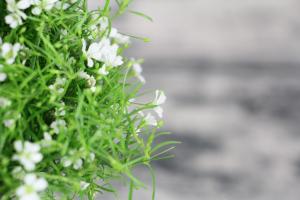Introduction
Planting black walnut trees is a great way to enhance the beauty of your landscape and also get some benefits from its nut. However, planting them requires careful consideration of a few factors, such as climate, soil type, and planting distance. The focus of this article is to discuss how far to plant black walnut trees from each other and other plants in your garden.
Factors to Consider
When deciding on how far to plant black walnut trees, several factors must be taken into account. The first important factor is the tree's mature size. Black walnut trees can reach heights of up to 100 feet, with their branches spreading over an area of about 60 feet. Therefore, it is crucial to plant them a safe distance away from any buildings, utility lines, or other trees that may be nearby.
In addition to mature size, you should also consider the soil type and the climate of your area. Black walnut trees prefer well-drained soils with a pH between 6.0 and 7.5. They also thrive in areas with significant rainfall or access to irrigation during the growing season.
Spacing Black Walnut Trees
To ensure optimal growth and nut production, it is recommended that black walnut trees be planted 30 to 40 feet apart from each other. This spacing will give each tree enough room to spread out its branches, access sunlight, and avoid competing for resources with its neighbors.
If you plan to plant a row of black walnut trees, then you should space them 30 to 35 feet apart from each other, which will provide enough room for a tractor or other farm equipment to pass between them.
Consider Other Plants in Your Garden
When planting black walnut trees, it is essential to consider other plants in your garden that may be affected by the tree's allelopathic properties. Black walnut trees produce a chemical called juglone, which can be toxic to some plants, inhibiting their growth or even killing them.
It is best to avoid planting sensitive plants, such as tomatoes, potatoes, and rhododendrons, near black walnut trees. If you must plant them nearby, then it is recommended that you place them at least 50 feet away from the tree and amend the soil by adding activated charcoal, which will neutralize juglone.
Conclusion
Planting black walnut trees can be an excellent addition to your garden, but it is essential to plant them at the right distance from other trees, buildings, and plants that may be nearby. In addition, take into account the tree's mature size, soil type, and climate of your area. Keep in mind that black walnut trees produce juglone, which can be toxic to some plants, and it is vital to avoid planting sensitive plants near them. By taking these factors into consideration, you can ensure that your black walnut trees get the best start and grow into healthy, productive trees that will reward you with their beautiful wood and delicious nuts.

 how many times do yo...
how many times do yo... how many planted tre...
how many planted tre... how many pine trees ...
how many pine trees ... how many pecan trees...
how many pecan trees... how many plants comp...
how many plants comp... how many plants can ...
how many plants can ... how many plants and ...
how many plants and ... how many pepper plan...
how many pepper plan...

































